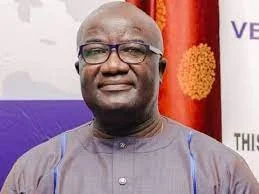The Electoral
Commission for Sierra Leone (ECSL) is set to release the comprehensive voter
register to political parties in the coming days, as confirmed by Mohamed
Konneh, the Commissioner. The announcement was made during a meeting at Tower
Hill in Freetown, where Konneh stated that, following the established practice,
the voter register, including names and images of voters, would be made public.
This move aims to enhance transparency and facilitate the democratic process,
allowing political parties to access and print the information.
The ECSL Commissioner
also revealed that ballots are currently in the process of being printed and
will be ready for the upcoming elections on June 24. Notably, all political
parties will be present when the ballots are received at the airport before
being distributed to various regions, ensuring a collaborative and inclusive
approach.
Expressing the
Commission's commitment to open communication, Konneh assured political parties
of ongoing dialogue, acknowledging their sacrifices and emphasizing the ECSL's
dedication to conducting fair elections. This commitment is crucial to building
trust and fostering a cooperative environment as Sierra Leone approaches its
electoral event.
However, concerns
were raised by representatives of the main opposition party, the All People's
Congress (APC), specifically regarding the accuracy and usability of the voter
list. Dr. Richard Conteh and Lansana Dumbuya expressed reservations about the potential
discrepancies between the provided voter list and the one utilized by ECSL
staff on polling day. Konteh highlighted concerns about the poor quality of
images in the register, indicating potential difficulties in voter
identification at the polls.
In response, Henry
Jusufu Swaray, Director of Voter and Data Roll at ECSL, clarified that
political parties would not be granted access to the same voter list as ECSL
staff. Citing privacy and security concerns, Swaray explained that providing
identical lists could jeopardize voter data and potentially put individuals at
risk post-election.
Swaray emphasized
that this practice aligns with past elections, citing the 2012 and 2018
elections as precedents. This cautious approach aims to balance the need for
transparency with the imperative to safeguard sensitive voter information.
The importance of the
voter register in democratic elections cannot be overstated. It plays a pivotal
role in ensuring the integrity and fairness of the electoral process through
several key functions.
Firstly, inclusion:
The register enables eligible citizens to exercise their voting rights,
ensuring all qualified individuals can participate in the democratic process.
Its accuracy is vital in preventing fraud, impersonation, and double voting,
maintaining the credibility and transparency of elections.
Secondly, planning: A
reliable and up-to-date register aids election authorities in organizing
elections efficiently, determining the number of polling stations, ballot
papers, and resources required for smooth conduct.
Thirdly,
accountability: The register provides a mechanism to verify voter turnout,
monitor electoral patterns, and hold elected officials accountable to the
people's will.
Additionally,
representation: A comprehensive register helps ensure fair representation by
enabling electoral boundaries to be drawn based on actual population
distribution, fostering equitable political representation.
Lastly, the voter
register serves as valuable data for research, analysis, and policy
development, enhancing electoral systems and democratic practices.
In conclusion, a
trustworthy voter register is fundamental to upholding democratic principles,
safeguarding citizens' rights, and fostering trust in the electoral process. As
Sierra Leone prepares for its upcoming elections, the careful management and
dissemination of the voter register will be crucial for ensuring a fair,
transparent, and accountable democratic exercise.


